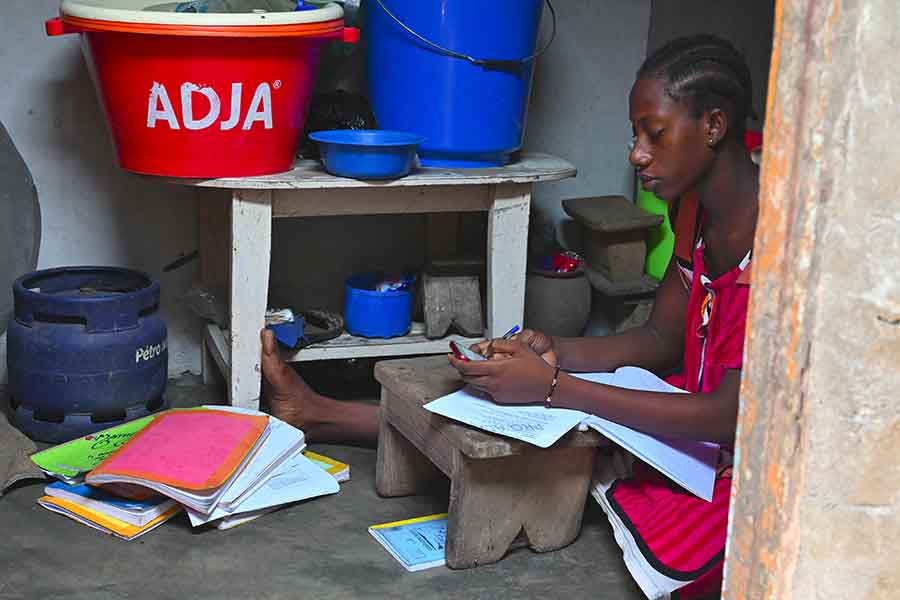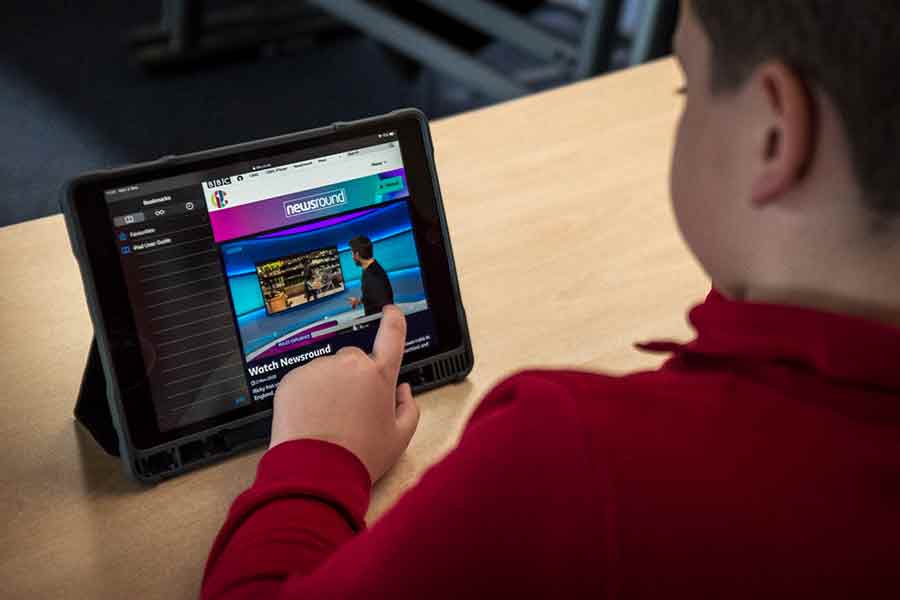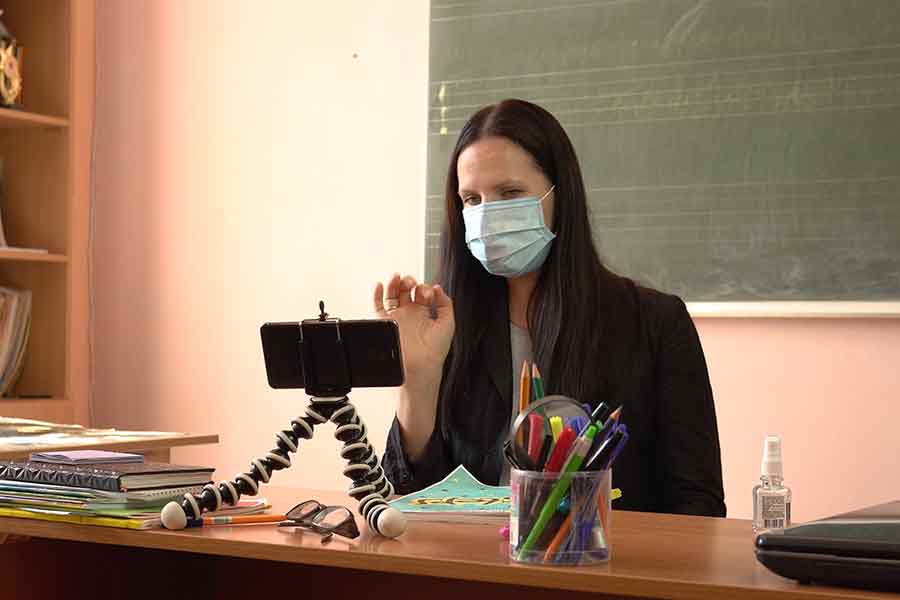The challenges for universities during the pandemic and a panorama of education in the post-covid era were raised within the activities of the 7th International Congress of Educational Innovation of the Tec (CIIE).
Leaders of organizations and educational institutions of Qatar, India, as well as African countries and latin americans, shared their views in the keynote panels “Transforming education: Lessons and challenges after the pandemic” and “Re-imagining higher education in the post-pandemic ”.
“Higher education in the world has faced a big problem due to COVID-19 (…) more than 200 million students in the world have not been able to have continuity in their education, and of these, only 60 percent have received some distance education ”, put in perspective Francisco Marmolejo, education counselor for the Qatar Foundation for Education.
Between the main challenges in the face of the pandemic, specialists spoke of the lack of resources, the digital divide, the emerging migration to digital education and the adapt educational spaces for him return in person.
This world scenario has also allowed evaluate what the future should look like and exposed the need for improve hybrid education, from competency accreditation and skills in less time, the collaborative work, among other topics.
Challenges in the face of the pandemic
The representatives of the universities emphasized which problems were exacerbated with the arrival of the pandemic, such as the digital divide, as well as the actions they have taken to achieve academic continuity.
– Digital divide
The inequality of internet access It is one of the main problems that higher education institutions have had to face around the world, he said. Pankaj Mittal, general secretary of the Association of Indian Universities.
“The year 2020 has been challenging for everyone there is a lot of diversity, there are many digital gaps because many students do not have access to devices or the internet ”, Mittal considered.
Cecilia Paredes, rector of ESPOL, a public university in Ecuador, pointed out that 60% of its students are of a low socioeconomic level and that 10% of these could not continue in virtual mode, so delivered more than a thousand tablets with access to the network.

– Emerging migration to digital education
“Very few teachers were prepared and equipped for online teaching, but in a short time most of them adopted this modality, although in many cases not with the same level of efficiency as face-to-face teaching ”, Mittal pointed out.
Marcelo Knobel, rector State University of Campinas, BrazilHe said that they were the first institution in his country to stop face-to-face activities to move on to online teaching.
“We received criticism but everyone stopped and we had the very important concern of leave no student behind”, he pointed.

– Limited resources of the institutions
In Africa, as well as in other regions of the world, the lack of support and resources is one of the major problems that increased during the pandemic, he considered Goolam Mohamedbhai, former secretary general of the Association of African Universities.
“There are no adequate financial resources and then there is the low quality of physical resources and lack of well-trained personnel; another important issue is insufficient innovation and poor conditions when there is a disconnect between teachers and students
“Resources are needed for public institutions of higher education and I fear that due to COVID-19 this will get worse, the government will not have sufficient funds or there will be other priorities such as health, then the lack of resources will be more severe ”, he pointed.

– Economic problems
The economic crisis due to the pandemic It has represented problems for the families of the students to be able to pay for their education, which implies complications for the subsistence of private universities.
“The private institutions depend on student tuition, some very high, and if students cannot pay these fees, the institutions they will not be able to cover their expenses and will have to close.
“In fact, private institutions that are closing in Africa, at this time that may also have a very serious impact on the development of the region”, Mohamedbhai commented.
– Return in person, still in the pandemic
Knobel, rector of the State University of Campinas in Brazil, shared how his university has been preparing with a careful plan to gradually return to activities.
“We were doing programs so that more students and people can keep coming back and with that little by little we return to work.
“Everyone who returns to campus is tested for COVID and we developed an app where people put how they feel and their symptoms to see if they can return ”, Knobel described.

Imagining post-COVID education
On the other hand, the context that surrounds the world has also allowed the education sector to streamline or re-evaluate issues for education. Among these, it stands out:
– Reinvent accreditations
Mohamedbhai commented that universities need to consider accrediting shorter study periods, not necessarily after three or four years of study, but perhaps, at the end of each cycle of a student’s career.
“I think it is a very interesting possibility because it means that students could go out and do something interesting, something useful like working in industry and then return to resume their studies and build on the experience they gained.
“It is something very interesting not only for Africa but for the whole world, it could be very useful and would allow greater connection between universities and the productive sector, it would be a reinvention of accreditations in education ”, Mohamedbhai considered.

– Reconsideration of the importance of higher education
“With the pandemic, in the end, researchers, professors, researchers had more space in the media and it was an important factor for show the importance of public universities in the country and in the world ”. Knobel said.
“I hope that governments recognize the importance of higher education for development and find a new formula to raise funds for this sector, there are other ways besides taxes ”, Mohamedbhai added.
– Internet in disconnected areas
Regions of the world that do not yet have internet service should be considered by different governments to invest in options for enable public places with network connection.
“If there are students in villages or towns that do not have internet at home They could go to a central place that does have access and there they can have an electronic or digital classroom, they are ways to do to try to close this digital divide ”, Mittal added.
– Better hybrid education
Education and its processes will have to evolve, Mittal said, a modality that combines the best of face-to-face and online formats.
“Me I see higher education outside of traditional buildings, more blended education; students who now depend solely on the teacher to learn will have to do so in a little more independent ways ”, Mittal said.
“Although we were forced to adopt distance education in the beginning, now we have seen the positive aspects of the technology and its potential to use it in other areas, could be a great advantage, for example in the management of institutions “Mohamedbhai noted.

– Collaborative work between institutions
Roberto Moreno, rector of the University of the Valley of Guatemala, noted that they are working on the creation of a center for partnerships with the private sector and other universities to continue serving society.
“One of the most important lessons we have had is the importance of collective and collaborative intelligence, It is very beneficial to be able to gather experiences and opinions to solve challenges together ”, I consider Angelica Natera, executive director of Laspau Inc. afiliada a Harvard University.
– Always put the student as a priority
Moreno considered that higher education institutions should ensure “No student left behind”.
“We must prioritize student communication and well-being, ensure the curricular flexibility to implement new delivery modalities and drive digital transformation leveraged on new technologies “, he pointed.

About CIIE
This is the seventh edition of the International Congress of Educational Innovation from Tec de Monterrey.
The event is carried out in a annual and by first time on this occasion of virtual way for 5 days of December 14-18 2020.
“Through the CIIE we identified challenges and opportunities that presents the current educational world. We seek to promote new methods and tools of teaching-learning that the new generations demand “commented David garza, rector of Tec.
In this edition, more than 4,500 attendees of 25 countries with the opportunity to listen to 25 rectors of universities and more than 70 international experts.
READ ALSO:
COVERAGE OF THE 7TH INTERNATIONAL CONGRESS OF EDUCATIONAL INNOVATION OF THE TEC:
– .


